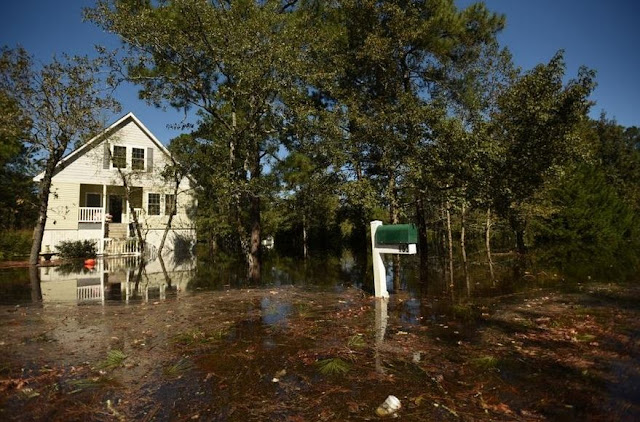Safety Tips for returning to flood zones
Wednesday Posted Oct 12, 2016 at 4:02 PM Updated Oct 12, 2016 at 5:47 PM
Flood waters may contain sewage. Children and pets should be kept away from any affected areas until cleanup has been completed. By Hannah DelaCourt StarNews Staff
SOUTHEASTERN N.C. -- On Tuesday the NC Department of Public Safety warned homeowners who might have had to evacuate due to flooding to take precautions when they are able to re-enter their homes.
Flood waters may contain sewage and so children and pets should be kept away from any affected areas until cleanup has been completed.
Rubber gloves, boots and googles should be worn during cleanup, and homeowners should remove and discard all items that cannot be washed and disinfected.
All hard surfaces should be thoroughly cleaned throughout the home, and all clothes worn during cleanup washed in hot water with detergent.
Those who use well water should not drink from their wells until they know the water is safe.
A release from the department stated that anyone who becomes injured or ill during cleanup should seek immediate medical attention.
Standing water is breeding ground for mosquitoes
Public health officials are advising people to “tip and toss” outdoor water containers after heavy rains from Hurricane Matthew.
Disposing of standing water is one of the easiest and most effective ways to reduce breeding sites for mosquitoes near houses, according to a release from the N.C. State Emergency Response Team.
But state officials warn that even with people dumping water from possibly breeding sites, they are likely to see an increase in nuisance mosquitoes.
“Based on experience with prior hurricanes there is a high probability that populations of nuisance mosquitoes, which often breed in floodplains, will increase,” said State Public Health Veterinarian Carl Williams. "These mosquitoes lay eggs on moist surfaces at sites where standing water occurs occasionally. The eggs remain dormant through a dry period and then hatch when covered with water. In this circumstance very large 'broods' of mosquitoes may emerge simultaneously.”
The release stated that nuisance mosquitoes rarely transmit disease and do not transmit the Zika virus. The mosquito that typically carries Zika has not yet been found in the state.
Fire ants pose danger during flooding
When a colony of fire ants is flooded during a high water event, the ants will cling to each other and form a living raft to float.
The ants will remain a “raft” until they come into contact with something they can adhere to, which could include debris piles or items from flooded homes.
The Occupational Safety and Health Administration advises anyone conducting storm clean up to wear protective clothing such as rubber boots, rain gear and cuffed gloves that can prevent the ants from reaching skin and to use insect repellants, such as DEET.
If attacked, consult a pharmacist for treatment of minor bites and irritation, but seek immediate medical attention especially if a person feels short of breath or has lots of swelling near bites.










